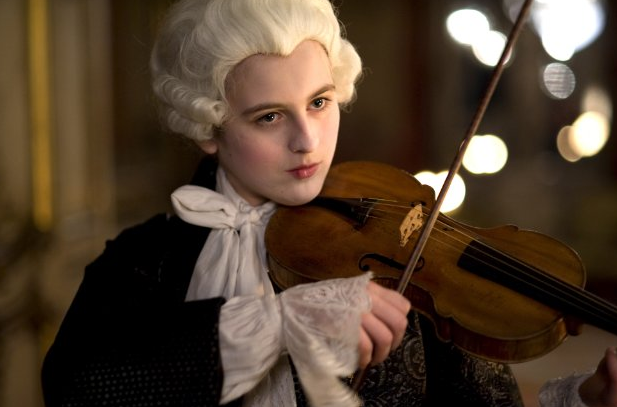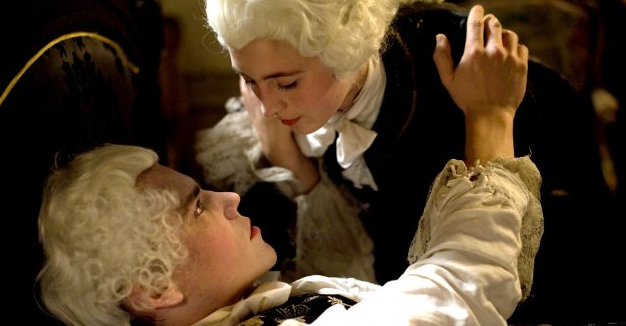Mozart’s sister
Mozart’s elder sister had French director René Féret wonder: what if Maria Anna Walburga Ignatia, affectionately called Nannerl, been as gifted a musician as her younger brother, Wolfgang Amadeus?
A product of her time—second half of the eighteenth century—she grew up on music as did her entire family, goaded by the formidable Leopold Mozart.
She played the harpsichord, the piano, and almost certainly the violin. She probably sang. Mozart’s letters tell us that she also composed though no score has reached us.
From that scant information Féret has reconstructed in Mozart’s Sister (“Nannerl, la soeur de Mozart”) the adolescence of this young woman born in an age where restrictions bound women and closed roads to them.
Nannerl, gifted and perhaps harboring ambitions of her own, knew full well her place in society and the limited role she could be allowed. Féret has cast his own fifteen-year old daughter in the title role and asked composer Marie-Jeanne Serero to score the film with the music Nannerl might have been written had she been born in an age where women didn’t have their wings clipped early on.
A lovely period piece, the film is also, as the director calls it, “the idea of a lost life.”
Mozart’s Sister is currently being shown in theatres (see TRAILER)
news via inbox
Nulla turp dis cursus. Integer liberos euismod pretium faucibua



